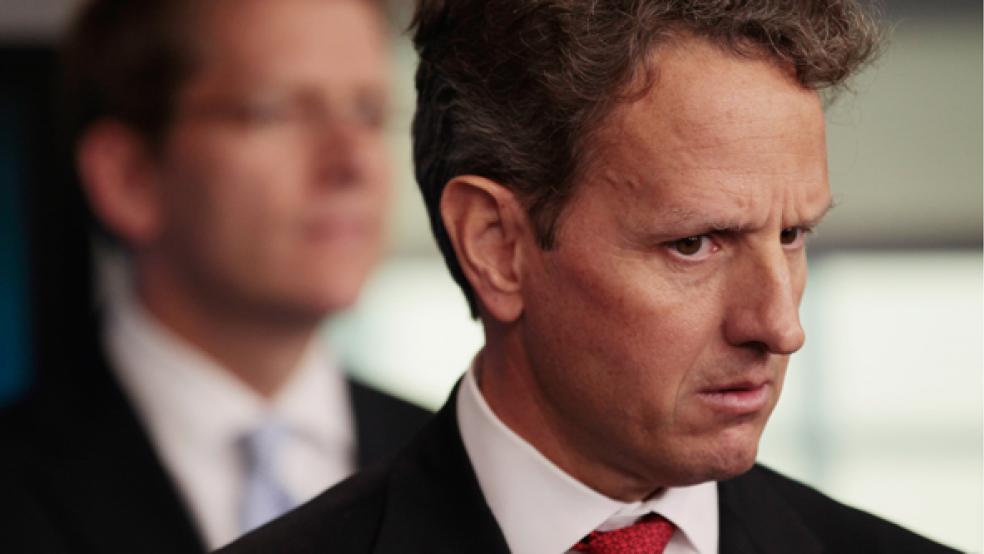Here’s a hidden benefit of being the largest debtor nation in the world. You don’t have to pony up to help other countries drowning in debt.
Leading up to this weekend’s annual meeting of the International Monetary Fund, managing director Christine Lagarde has been rummaging global treasuries in a high-profile hunt to round up $400 billion in new commitments to “backstop” the European Central Bank. That’s about $200 billion less than what she hoped to raise.
The goal is to avoid a global financial panic if a major debt-ridden country in Europe needs a major cash infusion because they’ve been shut out of credit markets. The creation of the new fund will go a long way to reassuring private investors that they needn’t fear default on Italian, Spanish or Greek bonds.
RELATED: HOW A EUROPEAN RECESSION CAN INFECT U.S. MARKETS
A number of countries have already stepped up to the plate this week, with Japan making a $60 billion commitment. Major creditor countries in Europe like Germany, Denmark, Norway and Sweden have contributed around $200 billion. They have raised $320 billion so far, well on the way to meeting their lowered expectations.
The IMF rejected notions the new money was needed to backstop Europe. "The idea of increasing the fund's firepower has always been to complement the European firewall on the global level," a spokesman said. "In other words, while Europe is in the first instance taking care of itself with its increased firewall, the fund will have an arsenal to prevent and fight crises globally."
No Additional Funds
But one country has been notably absent from the campaign – the United States. Fearing failure in the Congress, the White House has repeatedly said it will not seek additional funds for the IMF that could wind up being used to bail out European countries. And most economists would agree with that approach, since it makes the most sense for nations running major surpluses to provide emergency liquidity for the global financial system.
In a talk at the Brookings Institution on Wednesday, Treasury Secretary Tim Geithner defended the U.S. position by saying the U.S. essentially had already given at the office – the Federal Reserve Bank’s currency exchange window. It has remained open to European nations that want to swap their Euros for dollars and vice versa. “It’s a mistake to say the U.S. is standing apart,” he said. “We have been central to the broad effort in the world to reinforce what Europe is doing. Those swap lines have played an important role in dampening the effects of the crisis on the rest of the world.”
The creation of the new IMF fund is just the latest move by financial leaders of the advanced industrial world to get European economies moving again. Government austerity measures in countries along the European Union’s southern tier have triggered recessions, some of them quite severe. Nearly one in four workers in Spain, for instance, are unemployed.
However, the IMF in its semiannual World Economic Outlook published this week said it appears likely Europe will begin growing again this year. But a small recovery in Europe and a slowing economy in China will keep U.S. growth at around 2.1 percent. If that proves accurate, U.S. exports will suffer and its economy is unlikely to produce sufficient new jobs to significantly reduce the unemployment rate.
Geithner rejected the notion that sluggish growth has become the “new normal,” a phrase increasingly used to describe fears that the economy will remain anemic for most of this decade. It has taken four years to recover from the financial crisis triggered by the housing sector’s post-bubble debt collapse, he said, but the groundwork has now been laid for a more robust recovery based on exports, agriculture and investments in technology.
“There’s been a gradual adjustment in expectations in what it will take to make the economy grow over time,” he said. “We have a very resilient, very dynamic American economy.”




